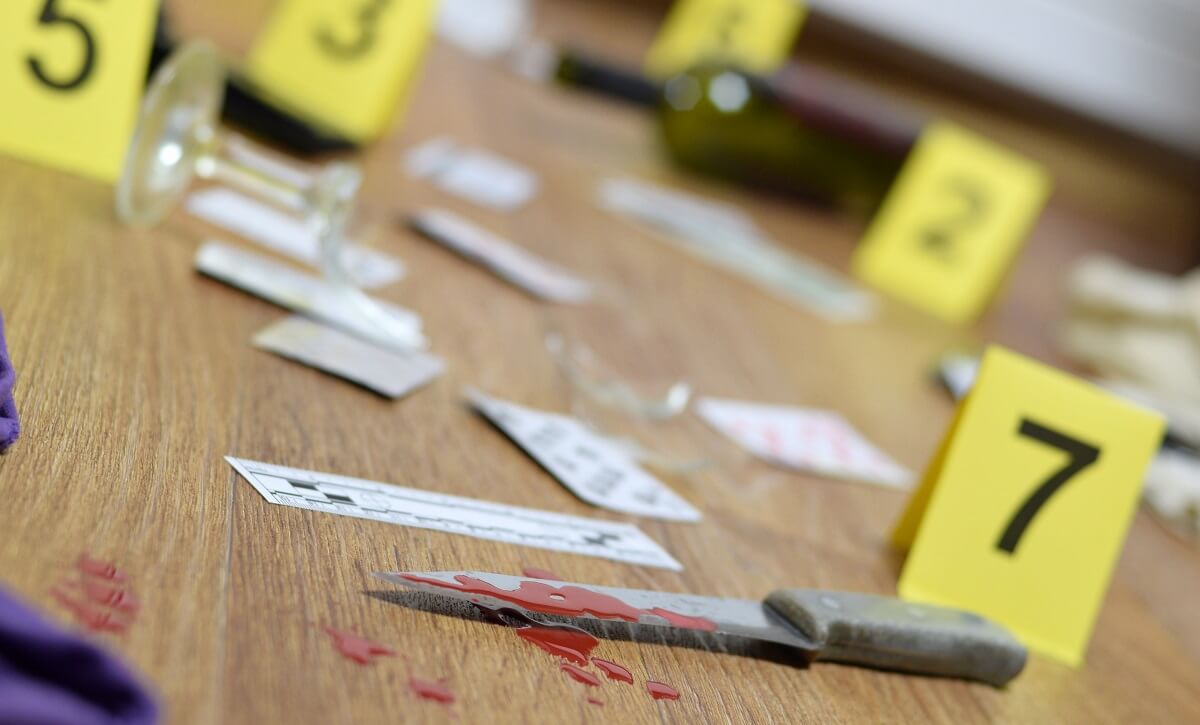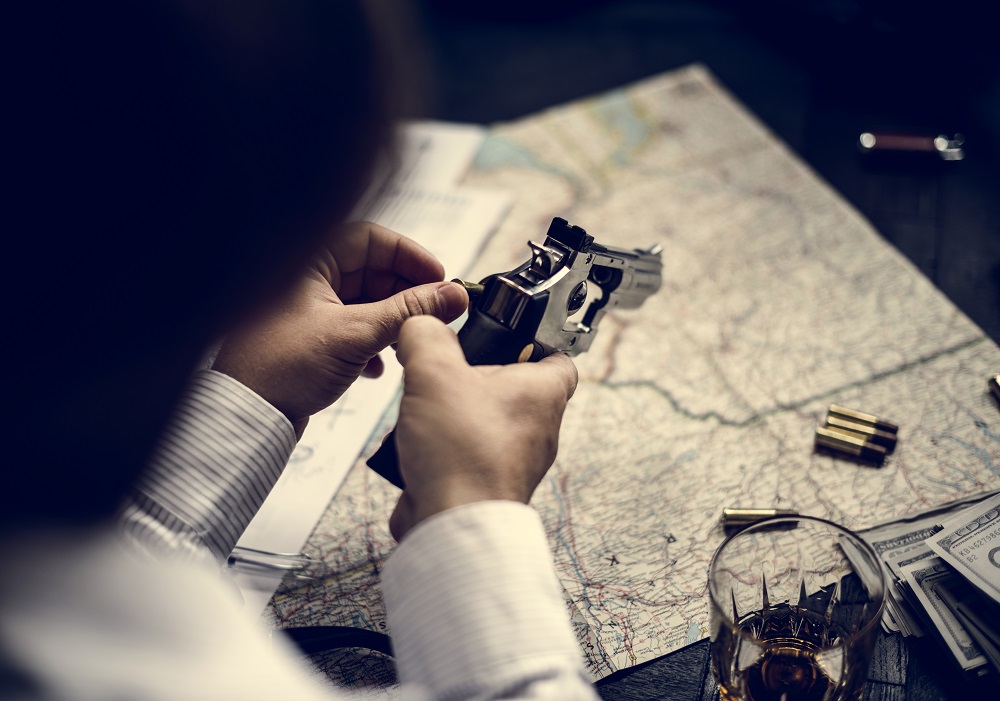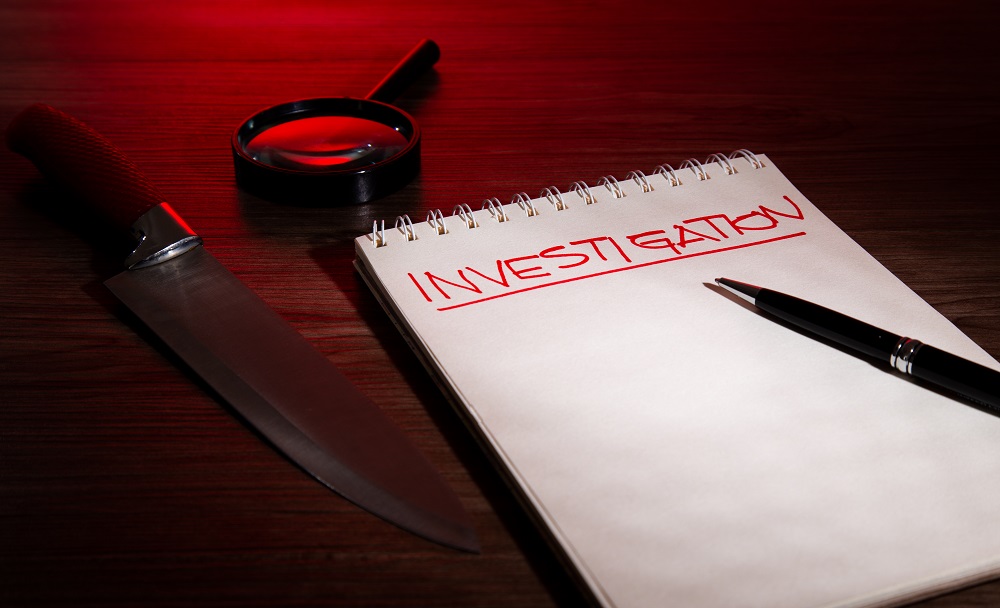Violent Crimes by David E. Stanley, APLC
Table of Contents
Toggle
First degree murder, second degree murder, manslaughter, vehicular homicide, first degree rape, second degree rape, sexual battery, aggravated kidnapping, aggravated arson, aggravated battery, aggravated assault, and armed robbery, are just a few of the fifty-six criminal offenses that are classified as crimes of violence in the Louisiana Criminal Code. An argument with a friend, a spouse, or even a stranger in a bar can spiral out of control. Things escalate and go beyond what can be undone. A punch is thrown, a kick is launched, a gun or knife is pulled, a shot is fired or someone is stabbed, and someone suffers serious bodily injury or dies. Violent Crimes Defense Attorney
Before you know it, you are led in handcuffs to the neighborhood police station charged with murder, manslaughter, aggravated battery, or assault with a firearm. Police start asking you questions in a custodial interrogation. You are scared, confused, unsure about your rights, and whether you should answer their questions. If you are accused of a violent crime in Louisiana, such as murder, manslaughter, or aggravated battery, would you know your rights, whether to answer questions, and what to do and not to do when dealing with the police in such a stressful situation. In these situations, you need to exercise your constitutional right to remain silent and immediately contact violent crimes defense attorney David E. Stanley, a highly skilled criminal defense lawyer, for help.

What is a Violent Crime
A crime of violence means an offense that has, as an element, the use, attempted use, or threatened use of physical force against the person or property of another, and that, by its very nature, involves a substantial risk that physical force against the person or property of another may be used in the course of committing the offense or an offense that involves the possession or use of a dangerous weapon. Examples of crimes of violence include first degree murder, second degree murder, manslaughter, aggravated battery, second degree battery, home invasion, armed robbery, second degree robbery, and terrorism. Violent Crimes Defense Attorney
Fighting Criminal Charges of
Violence in Louisiana
A person, otherwise eligible for parole, convicted of a crime of violence who does not have a prior felony conviction for a crime of violence or a sex offense must serve sixty-five percent of the sentence imposed to be eligible for parole consideration. A person otherwise eligible for parole, convicted of an offense that is a second conviction of a crime of violence, or a first or second conviction of a sex offense, is eligible for parole consideration upon serving seventy-five percent of the sentence imposed. A person convicted a third or subsequent time of a crime of violence, or a third or subsequent time of a sex offense as defined in R.S. 15:541 is not eligible for parole.
If you have been charged with a violent crime, there is still hope. Your best chance of mounting a successful defense, and avoiding the harsh penalties that these charges carry, is to hire an experienced and knowledgeable criminal defense attorney. Conviction of a nonviolent felony offense will affect your life less than a violent felony conviction. If you are convicted of a violent crime, it may:
- Adversely affect future child custody choices
- Restrict you from residing in some locations
- Make it challenging for you to get a higher education
- Take away your ability to participate in government programs or to obtain financial support
- Make it impossible to pursue the profession or career that you want
- Prevent expungement of the offense from your criminal record causing it to permanently remain on your criminal record

Felony convictions may result in harsh punishments that upend your life and have a long-lasting impact on your future. A conviction for a violent felony may result in years in prison, large fines, large restitution awards to the victim, and other steep penalties. If you are found guilty of a felony crime of violence, you will be unable to lawfully carry a firearm, and other rights of citizenship may be denied, restricted, or limited.
Louisiana's Violent Criminal Offenses
In Louisiana, fifty-six crimes are statutorily defined as a “crime of violence.” I defend all of the most serious violent crimes including murder, manslaughter, vehicular homicide, negligent homicide, aggravated kidnapping, aggravated arson, armed robbery, first degree rape, aggravated battery, and aggravated assault with a firearm. In addition, the following are some of the most frequent violent offenses:
Homicide
A homicide is the killing of a human being by the act, procurement, or culpable omission of another. Under Louisiana law, there are five grades of criminal homicide: (1) first degree murder; (2) second degree murder; (3) manslaughter; (4) negligent homicide; and (5) vehicular homicide. Violent Crimes Defense Attorney Baton Rouge
First Degree Murder
First Degree Murder is the most serious grade of homicide under Louisiana law. It is a capital offense that may result in the imposition of the death penalty. If the death penalty is not imposed, then the sentencing judge has no discretion and must impose a mandatory sentence of life imprisonment at hard labor without benefit of parole or suspension of sentence.
First Degree Murder is defined in Louisiana law as the killing of a human being when the offender has specific intent to kill or to inflict great bodily harm and at least one of the twelve statutorily enumerated aggravating factors are present when the killing occurs. These aggravated factors include, but are not limited to: when the offender is engaged in the perpetration or attempted perpetration of certain felony offenses; or when the offender has a specific intent to kill or to inflict great bodily harm upon more than one person; or when the offender has offered, has been offered, has given, or has received anything of value for the killing; or when the offender has the specific intent to kill or to inflict great bodily harm upon a victim who is under twelve years of age or sixty-five years of age or older.
Your attorney may initially try to have the charges dismissed, quashed, or reduced. Your lawyer may also try to suppress any evidence unlawfully obtained in violation of your constitutional or statutory rights. If you maintain your innocence, or do not believe that the evidence is sufficient to prove your guilt beyond a reasonable doubt, your attorney will take your case to trial and try to obtain a not-guilty verdict. In some cases, the evidence introduced at trial may not support a conviction for first degree murder. Instead, it will only support a conviction for a lesser crime than what was initially charged. For example, instead of supporting a conviction for first degree murder, the evidence introduced at trial may only support a conviction for second degree murder or manslaughter. Your lawyer will fight for the best result possible for you. In certain circumstances, it may be a conviction, or a guilty plea, to a lesser crime than first degree murder, which would take away the death penalty as a possible punishment.
Second Degree Murder
Second degree murder is the second most serious grade of homicide under Louisiana law. Upon conviction, or a guilty plea to a charge of second degree murder, the sentencing judge has no discretion and must impose a mandatory sentence of life imprisonment at hard labor without benefit of parole or suspension of sentence.
Second degree murder is defined as the killing of a human being when: (1) the offender has a specific intent to kill or to inflict great bodily harm; or (2) the offender is engaged in committing, or attempting to commit first degree rape, second degree rape, aggravated arson, aggravated burglary, aggravated kidnapping, second degree kidnapping, aggravated escape, assault by drive-by shooting, armed robbery, first degree robbery, second degree robbery, simple robbery, cruelty to juveniles, second degree cruelty to juveniles, or terrorism, even though he has no intent to kill or to inflict great bodily harm; or (3) the offender unlawfully distributes or dispenses a controlled dangerous substance, which is the direct cause of the death of the recipient who ingested or consumed it; or (4) the offender unlawfully distributes or dispenses a controlled dangerous substance to another, who subsequently distributes or dispenses it, which is the direct cause of the death of the person who ingested or consumed.
There is a growing trend for prosecutors to charge a person who sells, distributes, or provides controlled dangerous substances, such as fentanyl, heroin, cocaine, or methamphetamines, to another person, who then subsequently overdoses or dies as a result of ingesting it, with homicide. The end result for the person who distributes or dispenses the controlled dangerous substance could be a homicide conviction, and even a mandatory life sentence, under circumstances in which the offender had no specific intent to kill, or to inflict great bodily harm on, the person who took the substance.
While these cases are complex, there are potential defenses available to the person accused that must be carefully investigated and developed. Also, whether the substance ingested or consumed was the direct cause of death of the person who ingested it must also be explored and developed with the help of expert medical witnesses.
Manslaughter
Manslaughter is the third most serious grade of homicide. It is a crime of violence and occurs in one of three ways. Manslaughter is:
- A homicide which would be first degree murder or second degree murder, but the offense is committed in sudden passion or heat of blood immediately caused by provocation sufficient to deprive an average person of his self-control and cool reflection; or
- A homicide committed, without any intent to cause death or great bodily harm:
(a) when the offender is engaged in committing or attempting to commit any felony except first or second degree murder, or any intentional misdemeanor directly affecting the person; or
(b) when the offender is resisting lawful arrest by means, or in a manner, not inherently dangerous, and the circumstances are such that the killing would not be first or second degree murder; or
3. When the offender commits or attempts to commit any crime of violence, which is part of a continuous sequence of events resulting in the death of a human being where it was foreseeable that the offender’s conduct during the commission of the crime could result in death or great bodily harm to a human being, even if the offender has no intent to kill or to inflict great bodily harm.
However, provocation will not reduce a homicide to manslaughter if the jury finds that the offender’s blood had actually cooled, or that an average person’s blood would have cooled, at the time the offense was committed.
The State must establish the defendant killed a human being to get a conviction for first degree murder, second-degree murder, or manslaughter. The offender may be killed in the heat of passion or without intending to do so.
Under Louisiana’s manslaughter legislation, the defendant would be guilty of murder had he not been provoked in such a way that it was reasonable for him to lose self-control. If found guilty of murder in Louisiana, the defendant would face either the death penalty or a life sentence without parole or suspension of sentence. Saying that your life is at risk after being detained and accused of murder in Louisiana is not an exaggeration. However, you may be able to use legal justification defenses to have the charges against you dropped or reduced or you may be acquitted and found not guilty at trial. A skilled and competent criminal defense attorney can examine the allegations against you and inform you of your best choices for a successful case resolution.
You may also be wondering about the penalty for manslaughter in Louisiana. A person who is convicted or pleads guilty to manslaughter is facing a term of imprisonment at hard labor for up to forty years. However, if the person killed was under ten years of age, the offender shall be imprisoned at hard labor, without probation or suspension of sentence, for not less than ten years nor more than forty years. The offender may have killed in sudden passion, or heat of blood, immediately caused by provocation, or he may have killed without any intent to cause death or great bodily harm to the victim.
Aggravated Assault and Aggravated Battery
An attempt to commit a battery, or the intentional placing of another person in reasonable apprehension of receiving a battery, is an assault. A simple assault is an assault committed without a dangerous weapon. On the other hand, an aggravated assault is an assault committed with a dangerous weapon.
Aggravated assault is when someone is threatened with harm or wounded while being attacked with a dangerous weapon. Any item intended to cause significant injury may be regarded as a dangerous weapon. For example, a knife, baseball bat, or even a champagne bottle might be considered a weapon under the law. Aggravated assault, for instance, is wielding a baseball bat and threatening to strike someone with it.
Aggravated assault with a firearm is an assault committed with a firearm. Assault by drive-by shooting occurs when an assault is committed with a firearm when the offender uses a motor vehicle to facilitate the assault. So, for example, this would include a situation in which a firearm is discharged from a motor vehicle on a public street or highway with the intent either to kill, harm, or frighten another person. Sometimes, the status or position of the person assaulted, such as a dating partner, peace officer, school teacher, and child welfare worker, may affect the offense charged or the severity of the penalties imposed.
A battery occurs when there is an intentional use of force or violence upon the person of another; or the intentional administration of a poison or other noxious substance to another. A simple battery happens when a battery is committed without the consent of the victim. The court must establish that there was physical contact between the parties, and that the victim did not consent to the contact to find someone guilty of battery. For example, if two people consent to a boxing match, neither would be guilty of battery for hitting the other participant during the match.
A battery committed with a dangerous weapon is an aggravated battery. Any item, gas, liquid, or chemical that has the potential to kill or seriously injure someone may qualify as a dangerous weapon. Some items, like a gun or a knife, are lethal weapons. Other items that may be used as weapons and are likely to result in death or severe injury include rocks and pipes.
Second degree battery is a battery that occurs when the offender intentionally inflicts serious bodily injury on the victim. As you may have suspected, aggravated second degree battery is a battery committed with a dangerous weapon when the offender intentionally inflicts serious bodily injury. The penalties for aggravated battery, aggravated second degree battery, and second degree battery are increased if the defendant knew or should have known that the victim is an active member of the United States Armed Forces, or is a disabled veteran, and the aggravated battery was committed because of that status. As with assault, the status or position of the victim of the battery, such as police officer, school teacher, dating partner, or correctional facility employee, may affect the offense charged or the severity of the penalties imposed.

Aggravated Kidnapping
Aggravated kidnapping is the doing of any of the following acts with the intent thereby to force the victim, or some other person, to give up anything of value, or to grant any advantage or immunity, to secure the release of the person under the offender’s actual or apparent control: (1) the forcible seizing and carrying of any person from one place to another; or (2) the enticing or persuading of any person to go from one place to another; or (3) the imprisoning or forcible secreting of any person.
Secreting a person means to deposit, conceal, or put a person in a hiding place where they are unlikely to be found. The important question to be focused upon is whether the accused sought to obtain something of value, such as money, sex or even the loss of simple human dignity, by playing upon the victim’s fear and hope of eventual release in order to gain compliance with his demands.
Aggravated kidnapping is a serious felony offense. In Louisiana, it is a crime of violence that carries a mandatory sentence of life imprisonment at hard labor without benefit of parole, probation, or suspension of sentence.

Aggravated Arson
Aggravated arson is the intentional damaging by explosive substance or the setting fire to any structure, watercraft, or movable whereby it is foreseeable that human life might be endangered. Aggravated arson is both a felony and a crime of violence. Upon conviction, the penalty is imprisonment at hard labor for not less than six nor more than twenty years, and a fine of not more than twenty-five thousand dollars. Two years of such imprisonment at hard labor shall be without benefit of parole, probation, or suspension of sentence.
A person over the age of seventeen, who resides in Louisiana, convicted of an offense involving arson is required to register with the state fire marshal. Registration requires the offender to provide information to the state fire marshal including, but not limited to, his name, address, the crime for which he was convicted, the date and place of conviction, the court in which the conviction was obtained, the specific statute under which he was convicted, the sentence imposed, a current photograph of himself, all telephone numbers assigned to the offender, a description of every vehicle registered to or operated by the offender, a copy of the offender’s driver’s license or identification card, social security number, date of birth, past or current employment, and membership, or association with a public safety agency or emergency service organization. Knowingly providing false information to the state fire marshal pursuant to the provisions of this Chapter shall constitute a failure to register, which is a separate misdemeanor offense carrying a penalty of a fine of not more than one thousand dollars, imprisonment for not more than six months, or both.
Frequently Asked Questions:
What are the Punishments for Assault in Louisiana?
Simple assault is a misdemeanor. If found guilty of simple assault in Louisiana, the penalty is a fine of not more than two hundred dollars, or imprisonment for not more than ninety days, or both. Aggravated assault is also a misdemeanor but it carries a penalty of a fine of not more than one thousand dollars, or imprisonment for not more than six months, or both.
But, assault by drive-by shooting is a felony with a penalty of imprisonment for not less than one year nor more than five years, with or without hard labor, and without benefit of suspension of sentence. Likewise,aggravated assault with a firearm is a felony with a penalty of a fine of not more than ten thousand dollars or imprisonment, with or without hard labor, for not more than ten years, or both.
What are the Punishments for Battery in Louisiana?
Simple battery is also a misdemeanor with a penalty of a fine of not more than one thousand dollars or imprisoned for not more than six months, or both.
However, aggravated battery is a felony. It carries a penalty of a fine of not more than five thousand dollars, imprisonment with or without hard labor for not more than ten years, or both. If the offender knew or should have known that the victim is an active member of the United States Armed Forces or is a disabled veteran, and the aggravated battery was committed because of that status, then at least one year of the sentence imposed must be served without benefit of parole, probation, or suspension of sentence.
What is Carjacking?
Carjacking is the intentional taking of a motor vehicle that belongs to another person, in the presence of that person, or in the presence of a passenger, or any other person in lawful possession of the vehicle, by the use of force or intimidation. The penalty for carjacking is imprisonment at hard labor for not less than two years nor more than twenty years, without benefit of parole, probation, or suspension of sentence. But, if the carjacking results in serious bodily injury, the penalty is imprisonment at hard labor for not less than ten years nor more than twenty years, without benefit of parole, probation, or suspension of sentence.
Your Aggressive Criminal Counsel in Louisiana
In Louisiana, being charged with a crime of violence must be taken very seriously. Competent and experienced counsel should be retained as soon as possible because the accused is in serious jeopardy of suffering life-long repercussions up to, and including, the death penalty, life imprisonment, a lengthy term of imprisonment, or a mandatory minimum term of imprisonment.
At each stage of the proceedings, David E. Stanley, APLC, will take the actions necessary to preserve and protect your rights. Without knowledgeable and experienced counsel, being charged with a violent crime will drastically disrupt your life and may force you to remain in jail while awaiting trial. For the accused, this may be an overwhelming disaster, which could result in divorce, loss of the custody of children, loss of employment, loss of professional licenses, or home foreclosure.
If you are charged with a violent crime, you need to understand what you are facing and the defenses and options available to you. You also need to be made fully aware of how difficult your situation becomes if you are convicted of a crime of violence in Louisiana. The sooner you contact an accomplished criminal trial lawyer the better your prospects become to achieve a satisfactory resolution of your case. Do not hesitate. Call David Stanley now for your completely confidential and in-depth Violent Crime criminal defense strategy session. Let him help you resolve your charges so that you can put them behind you and get your life back to normal as soon as possible.
Looking for A Criminal Defense Attorney? David Stanley, APLC is a seasoned and trusted Violent Crimes Defense Attorney in Baton Rouge LA who can help and guide you through your legal battle. We serve the following areas:
Criminal Defense Attorney Ascension Parish, LA
Criminal Defense Attorney Baker, LA
Criminal Defense Attorney Baton Rouge, LA
Criminal Defense Attorney Central City, LA
Criminal Defense Attorney East Baton Rouge Parish, LA
Criminal Defense Attorney East Feliciana Parish, LA
Criminal Defense Attorney Greenwell Springs, LA
Criminal Defense Attorney Iberville Parish, LA
Criminal Defense Attorney Lafayette Parish, LA
Criminal Defense Attorney Livingston Parish, LA
Criminal Defense Attorney Pointe Coupee Parish, LA
Criminal Defense Attorney Pride, LA
Criminal Defense Attorney St. Tammany Parish, LA
Criminal Defense Attorney Tangipahoa Parish, LA
Criminal Defense Attorney West Baton Rouge, LA
Criminal Defense Attorney West Feliciana Parish, LA
Criminal Defense Attorney Zachary, LA
David E. Stanley, APLC
1055 Laurel Street, Suite 2
Baton Rouge, LA 70802
225-926-0200


